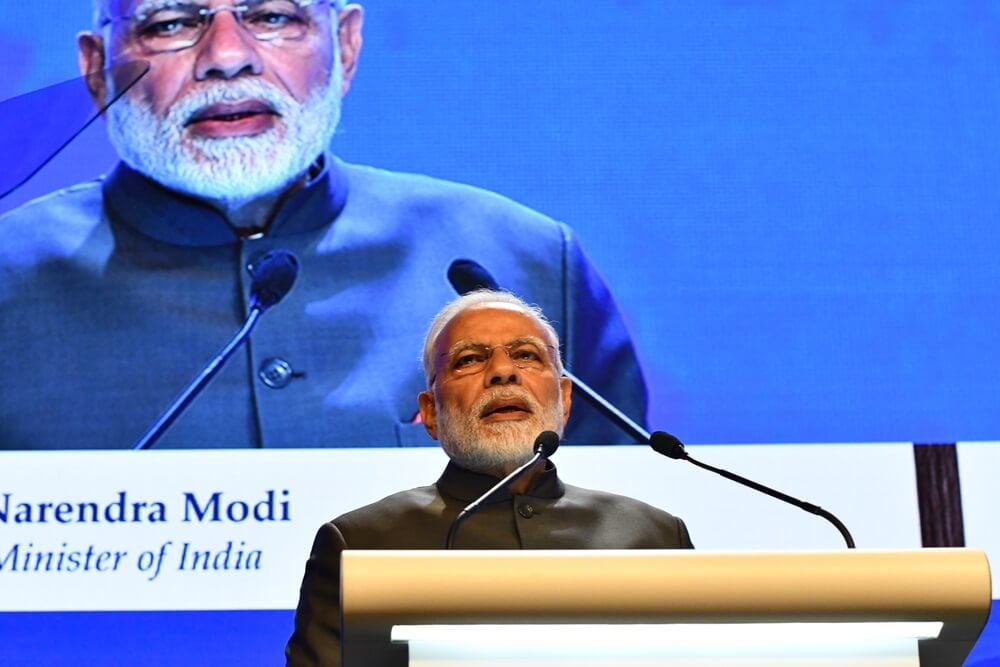It is almost a year since student-led protests forced Sheikh Hasina to resign her premiership on 5 August, 2024, and to flee Bangladesh for India, where she lives in a secret location under tight security.
Nobel Peace Prize laureate Muhammad Yunus took over as interim leader, and he has exceeded expectations given the daunting political, economic, and security challenges facing the country.
But many people are wondering if he will continue to manage amid socio-political instability at home and abroad.
Among his immediate tasks is to set a date for fresh elections next year, deal with the fallout from President Donald Trump’s tariff war, and walk a fine line between regional heavyweights India and China.
Hasina’s trial and the future of Bangladesh
A looming and potential flashpoint is the 3 August start of the trial of Hasina, who has been indicted in absentia on charges of crimes against humanity in connection with a crackdown on last year’s protests that killed about 1,400 people.
An International Crimes Tribunal of Bangladesh was set up under Hasina’s Awami League political party to try collaborators with Pakistani troops during Bangladesh’s 1971 independence war with Pakistan.
The tribunal now faces the daunting task of ensuring a fair trial given criticism by groups such as Human Rights Watch, which has called for it to be reformed in line with international law.
Yunus, 84, is also under pressure to hold elections, but he has insisted on more time to enact reforms, and he has refused to step down until after a new poll.
Hundreds of thousands of Jamaat-e-Islami’s supporters rallied on 19 July to demand free and fair elections
In May, Yunus’s interim administration banned the Awami League from politics under a legally questionable manoeuvre, and observers say the party should be included or risk worsening divisions.
Meanwhile, a gathering force is the Jamaat-e-Islami, an Islamist party which sided with Pakistan during the 1971 war, after which many of its leaders were executed or jailed for crimes against humanity.
Hundreds of thousands of Jamaat-e-Islami’s supporters rallied in the capital, Dhaka, on 19 July to demand free and fair elections.
The party is gaining momentum in public opinion and could become a third force behind the Bangladesh Nationalist Party and the Awami League.
Creating a new Bangladesh
There is much speculation Yunus may announce an election date within the next few days. But there are divisions among Bangladesh’s more than 150 political parties over his July Charter, a set of election and list reforms.
Yunus says the charter aims to overhaul democratic institutions. “We want to say goodbye to the old Bangladesh and create a new Bangladesh,” Yunus said last month.
Adding to the country’s woes is the economy, although it has done better than expected, with inflation slowing to 9% in May from 12% a year ago, but US tariffs are looming ahead.
On 27 July, Dhaka ordered 25 aircraft from the US company Boeing and said it would increase imports of US wheat and other commodities in an effort to avoid a 35% hike in tariffs threatened by Washington that would cause a severe hit to Bangladesh’s garment export sector.
The UK government should feel legally and morally obliged to help track it down - Muhammad Yunis
Yunus is also battling to recover at least some of the estimated $234 billion lost to corruption during the 15-year rule of Hasina.
Bangladesh has contacted litigation funding firms, which pay for the costs of pursuing civil lawsuits, including lawyer fees and court costs, in return for a share of any settlement or court award if the case succeeds, the FT reported.
Yunus called for “more enthusiastic support” from UK authorities to trace and reclaim funds. “This is stolen money,” he told the FT, adding that the UK government should feel “legally and, I would say, morally” obliged to help track it down.
Straddling between New Delhi and Beijing
In foreign relations, Yunus appears to be trying to straddle between New Delhi and Beijing after Hasina’s overwhelmingly pro-India tilt.
He made an official visit to China in March and secured a $2.1 billion loan in addition to loans from international creditors such as the IMF and the Asian Development Bank.
 India fears Bangladesh is aligning with China and Pakistan - Narendra Modi
India fears Bangladesh is aligning with China and Pakistan - Narendra Modi
India fears Bangladesh is aligning with China and Pakistan to its detriment after diplomats from the three countries met in Kunming, China. But Dhaka says its foreign policy remains non-aligned.
India, meanwhile, has expelled hundreds of ethnic Bengali Muslims to Bangladesh without due process, claiming they are illegal immigrants, says Human Rights Watch, further raising tensions between the two countries.
What appears certain is that Yunus is breaking from Bangladesh’s previous “India-centric orientation” in a decisive foreign policy shift, said a recent Chatham House commentary.
“Under Yunus, Bangladesh is planning to become more than a periphery state to India, engaging the world on its own terms, pursuing strategic diversification through collaboration with Chinese, Turkish, and Pakistani partners on military technology and digital infrastructure,” it said.